Abstract
Examples of confabulation in Korsakoff patients, Alzheimer-type dementing patients, and healthy subjects are discussed. It is argued that there may be two types of confabulation: spontaneous confabulation, which may result from the superimposition of frontal dysfunction on an organic amnesia, and provoked confabulation, which may reflect a normal response to a faulty memory. In the present study, instances of provoked confabulation, given by Korsakoff and Alzheimer patients in story recall, were compared with those produced by healthy subjects at a prolonged retention interval.
Full text
PDF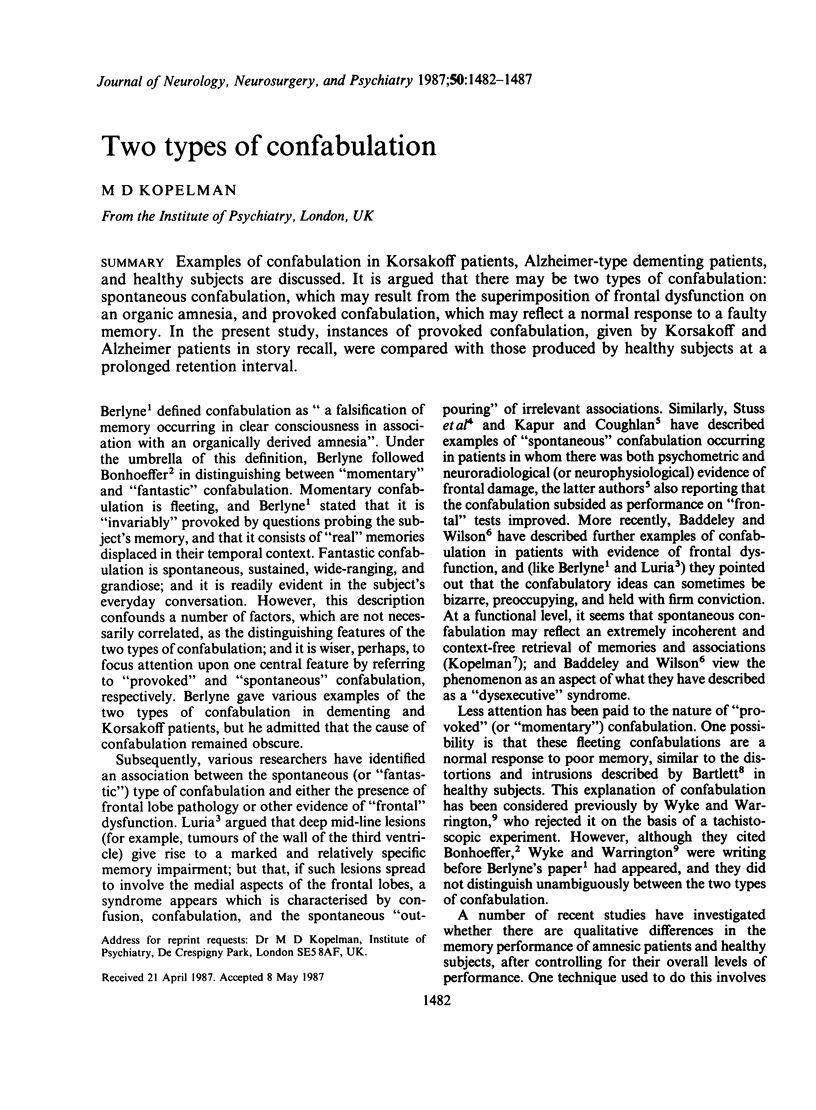
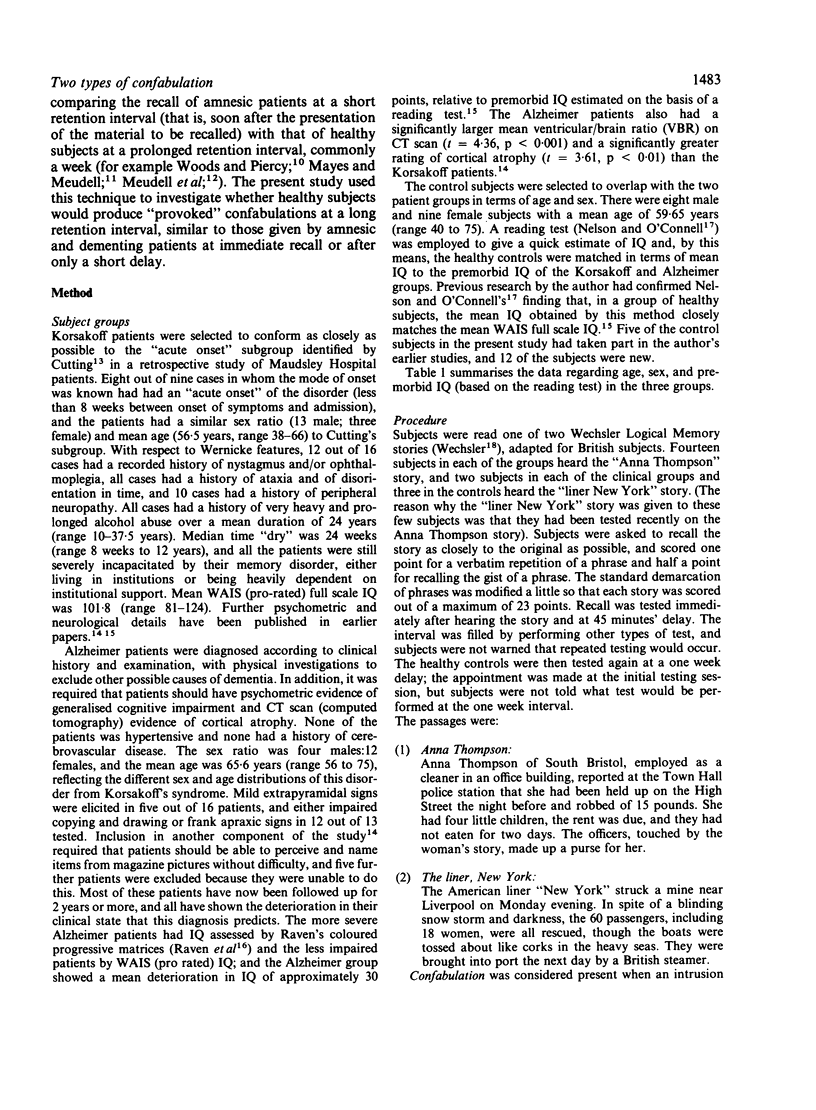
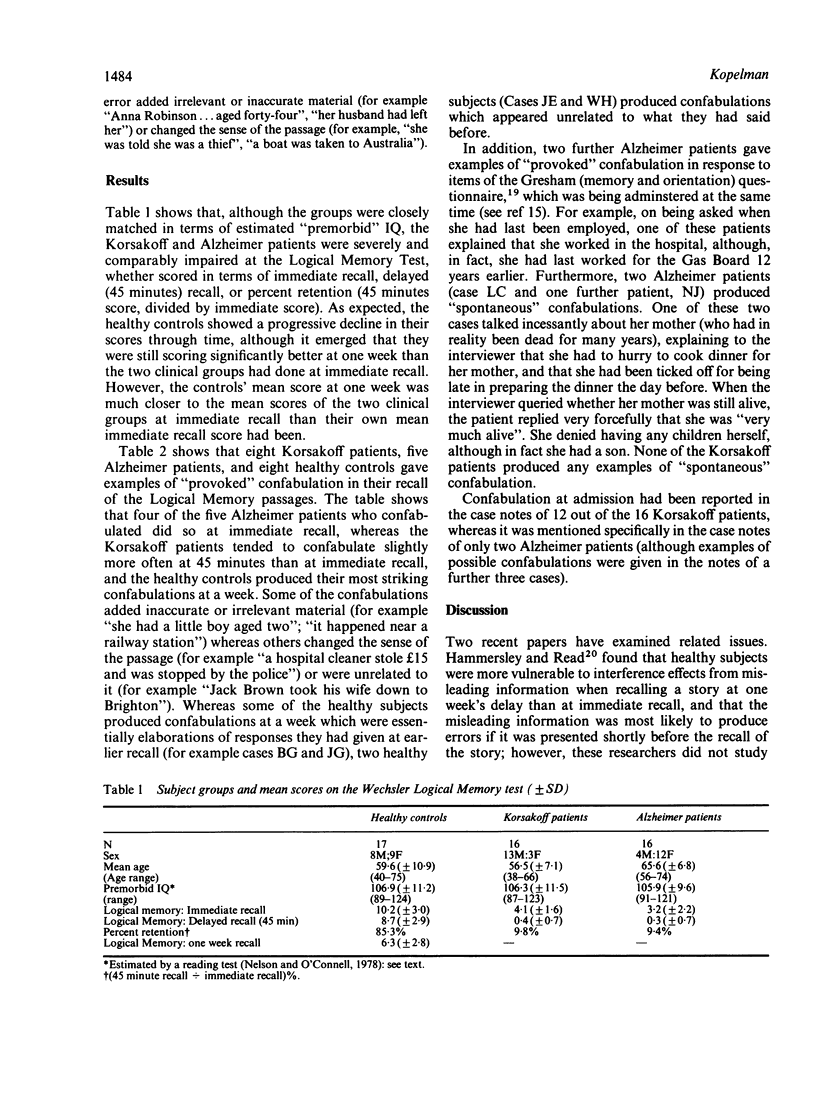
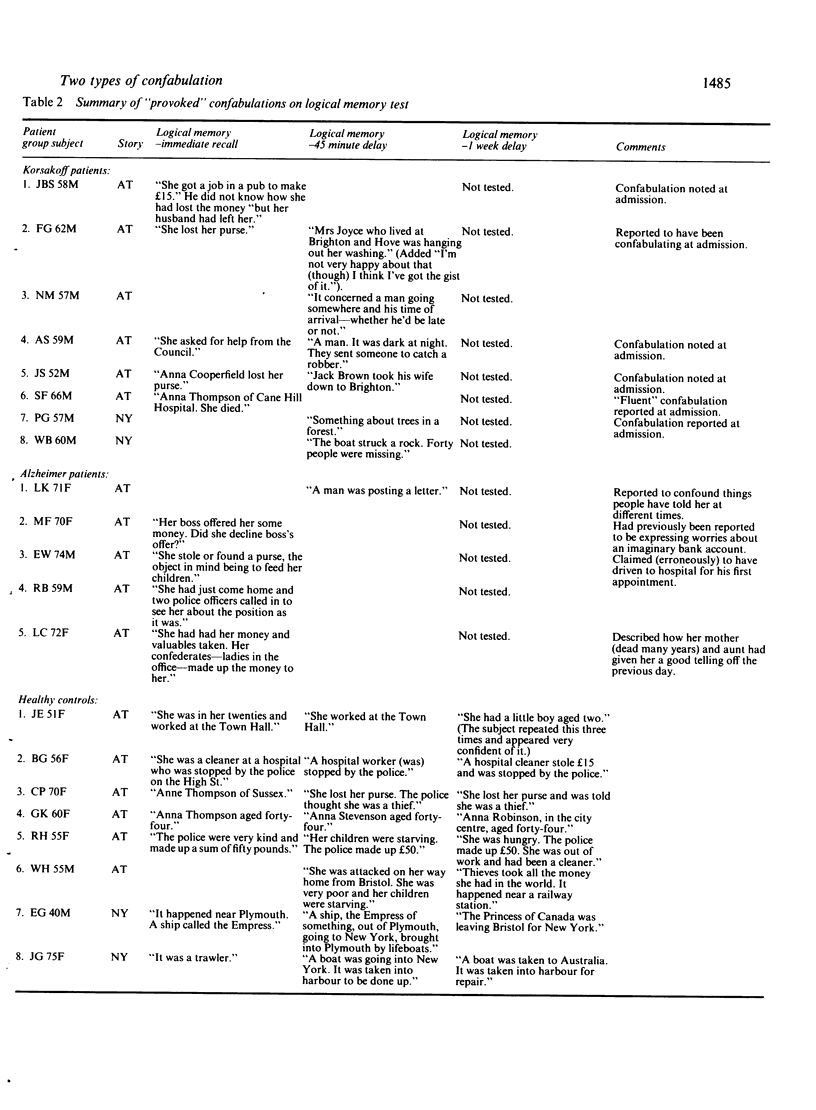
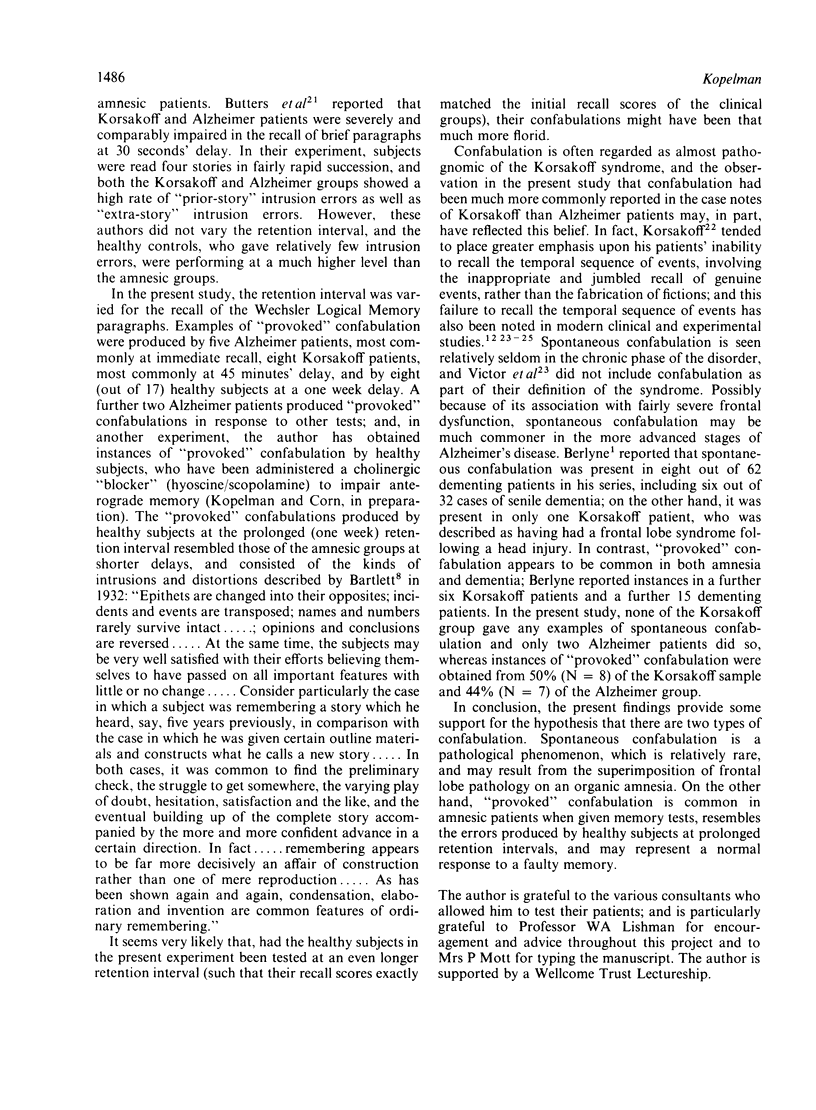
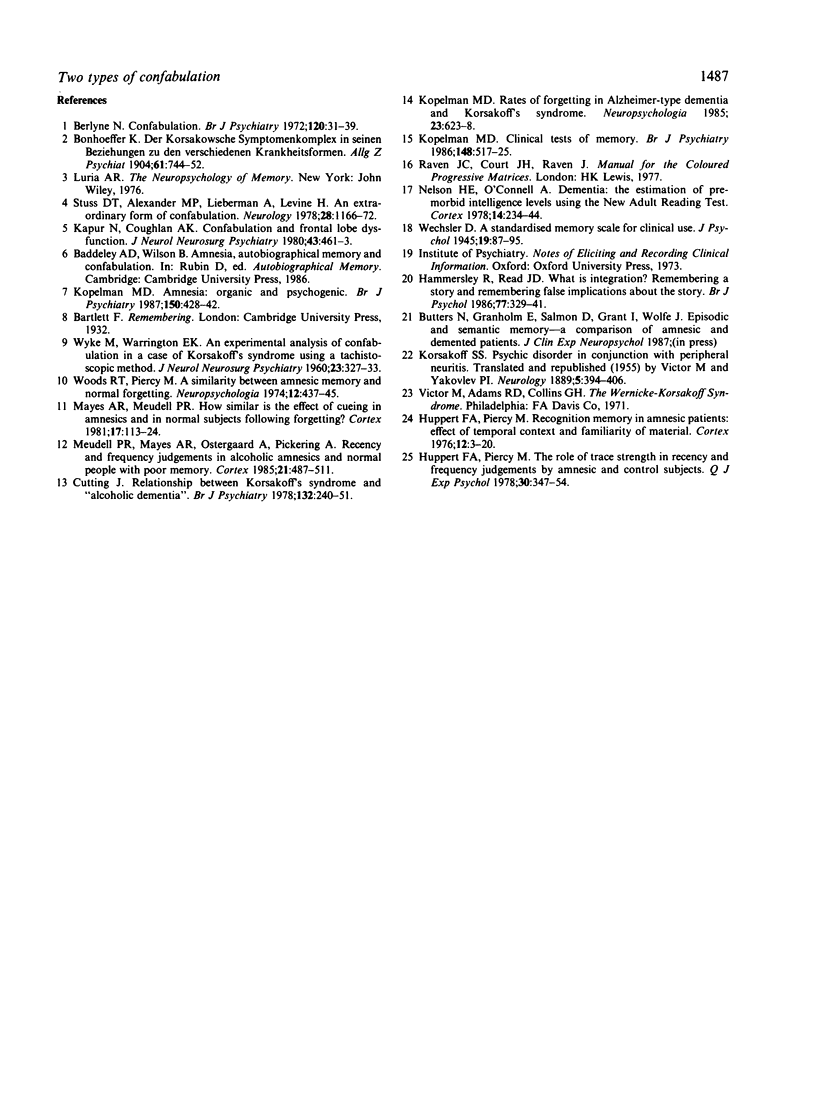
Selected References
These references are in PubMed. This may not be the complete list of references from this article.
- Berlyne N. Confabulation. Br J Psychiatry. 1972 Jan;120(554):31–39. doi: 10.1192/bjp.120.554.31. [DOI] [PubMed] [Google Scholar]
- Huppert F. A., Piercy M. Recognition memory in amnesic patients: effect of temporal context and familiarity of material. Cortex. 1976 Mar;12(1):3–20. doi: 10.1016/s0010-9452(76)80024-x. [DOI] [PubMed] [Google Scholar]
- Huppert F. A., Piercy M. The role of trace strength in recency and frequency judgements by amnesic and control subjects. Q J Exp Psychol. 1978 May;30(2):347–354. doi: 10.1080/14640747808400681. [DOI] [PubMed] [Google Scholar]
- Kapur N., Coughlan A. K. Confabulation and frontal lobe dysfunction. J Neurol Neurosurg Psychiatry. 1980 May;43(5):461–463. doi: 10.1136/jnnp.43.5.461. [DOI] [PMC free article] [PubMed] [Google Scholar]
- Kopelman M. D. Amnesia: organic and psychogenic. Br J Psychiatry. 1987 Apr;150:428–442. doi: 10.1192/bjp.150.4.428. [DOI] [PubMed] [Google Scholar]
- Kopelman M. D. Clinical tests of memory. Br J Psychiatry. 1986 May;148:517–525. doi: 10.1192/bjp.148.5.517. [DOI] [PubMed] [Google Scholar]
- Kopelman M. D. Rates of forgetting in Alzheimer-type dementia and Korsakoff's syndrome. Neuropsychologia. 1985;23(5):623–638. doi: 10.1016/0028-3932(85)90064-8. [DOI] [PubMed] [Google Scholar]
- Meudell P. R., Mayes A. R., Ostergaard A., Pickering A. Recency and frequency judgements in alcoholic amnesics and normal people with poor memory. Cortex. 1985 Dec;21(4):487–511. doi: 10.1016/s0010-9452(58)80001-5. [DOI] [PubMed] [Google Scholar]
- Nelson H. E., O'Connell A. Dementia: the estimation of premorbid intelligence levels using the New Adult Reading Test. Cortex. 1978 Jun;14(2):234–244. doi: 10.1016/s0010-9452(78)80049-5. [DOI] [PubMed] [Google Scholar]
- Stuss D. T., Alexander M. P., Lieberman A., Levine H. An extraordinary form of confabulation. Neurology. 1978 Nov;28(11):1166–1172. doi: 10.1212/wnl.28.11.1166. [DOI] [PubMed] [Google Scholar]
- WYKE M., WARRINGTON E. An experimental analysis of confabulation in a case of Korsakoff's syndrome using a tachistoscopic method. J Neurol Neurosurg Psychiatry. 1960 Nov;23:327–333. doi: 10.1136/jnnp.23.4.327. [DOI] [PMC free article] [PubMed] [Google Scholar]
- Woods R. T., Piercy M. A similarity between amnesic memory and normal forgetting. Neuropsychologia. 1974 Oct;12(4):437–445. doi: 10.1016/0028-3932(74)90074-8. [DOI] [PubMed] [Google Scholar]


